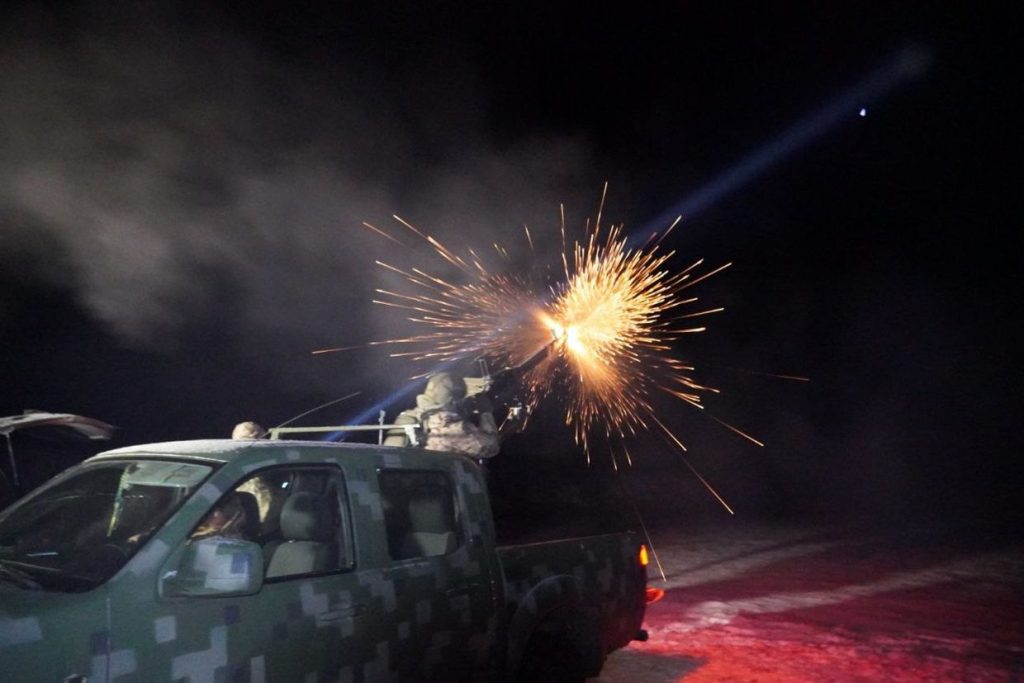Russian forces have intensified their attacks on border areas and settlements in Sumy Oblast, Ukraine, with at least 181 explosions reported on March 26. The communities targeted include Shalyhyne, Seredyno-Buda, Khotin, Bilopillia, Yunakivka, Velyka Pysarivka, Krasnopillia, Myropillia, Stepanivka, and Putyvl. The attacks involved artillery fire, aerial bombings, and mortar shelling, as well as the dropping of mines in four communities. Fortunately, no casualties or injuries were reported, but the town of Velyka Pysarivka experienced the highest number of attacks with 62 explosions recorded in the area. Despite ongoing evacuation efforts, approximately 250 residents remain in Velyka Pysarivka, which had a pre-war population of about 4,000.
The situation in Sumy Oblast has been escalating in recent weeks, with Russian attacks becoming increasingly destructive. Last week, a Russian aerial bomb in Velyka Pysarivka resulted in one death and one injury, as well as damage to multiple homes, a hospital, and a kindergarten. Additional attacks on the town have claimed civilian lives, prompting authorities to prioritize evacuation efforts. Nearly 300 residents have been evacuated from Velyka Pysarivka in the past week, but the ongoing conflict has caused significant challenges for the community. The 117th Territorial Defense Brigade in Sumy Oblast is working to address the impact of daily shelling and attacks from across the Russian border.
In a disturbing development, the United Nations reported that at least 32 Ukrainian prisoners of war (POWs) were executed in Russian captivity during the winter months. This revelation sheds light on the brutality and human rights violations occurring in the conflict between Russia and Ukraine. In response to the escalating violence, Ukraine has continued to defend its territory and target Russian military assets, such as the Neptune missile strike on the Russian landing ship Konstantin Olshansky. The Ukrainian government has also dismissed Security Council secretary Danilov, as tensions with Russia persist.
Amid the ongoing conflict, the international community is closely monitoring the situation in Ukraine and exploring potential actions to address the crisis. NATO is reportedly considering options, including the possibility of shooting down Russian aircraft, as the conflict continues to escalate. The support for Ukraine and condemnation of Russian aggression remain prominent themes in global discussions, with a focus on ensuring the protection of Ukrainian civilians and the preservation of Ukraine’s sovereignty. As the situation evolves, efforts to support independent journalism in Ukraine and raise awareness of the humanitarian crisis are critical in promoting accountability and transparency.
Despite the challenges and dangers faced by Ukrainian civilians, there are ongoing efforts to provide support, assistance, and resources to those affected by the conflict. Evacuation efforts, aid distribution, and humanitarian initiatives are essential in mitigating the impact of the conflict on vulnerable populations and ensuring their safety and well-being. Civilian casualties and human rights violations must be addressed, and accountability for war crimes and atrocities committed during the conflict must be pursued. As the conflict in Ukraine continues to unfold, the need for international solidarity, support, and action to uphold peace, justice, and humanitarian principles remains paramount. Joining the fight to support independent journalism in Ukraine is a crucial step in standing with the Ukrainian people and advocating for a peaceful resolution to the crisis.


